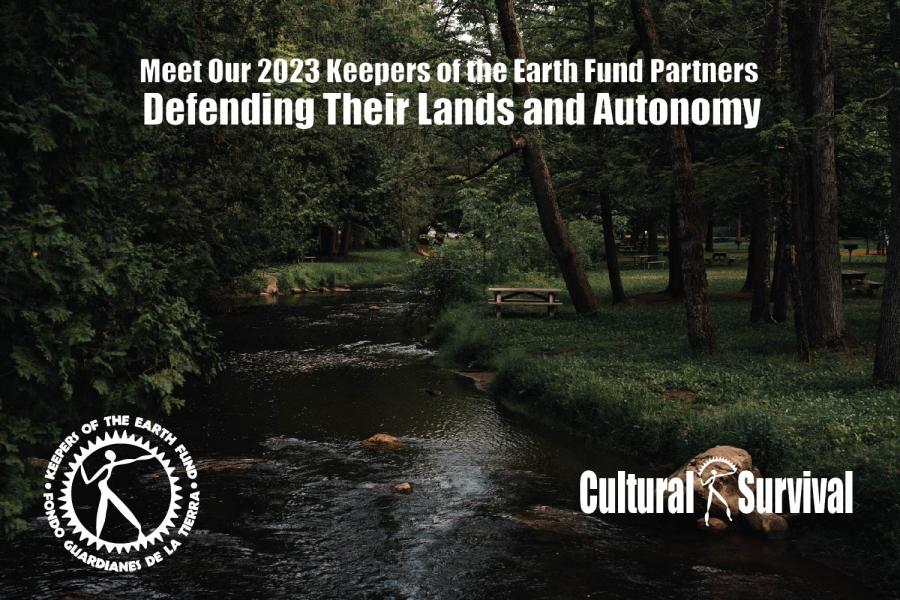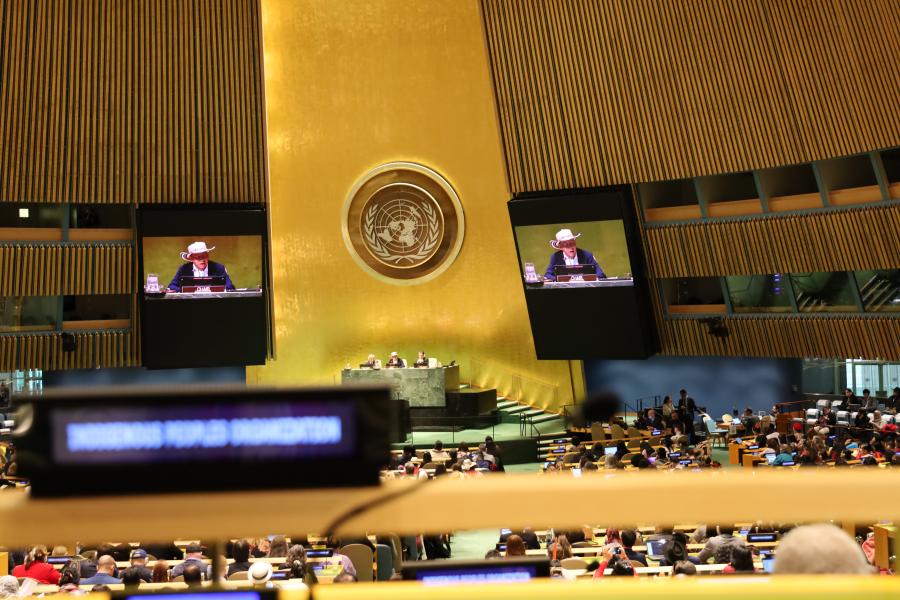
April 17, 2023
Discussion on the six mandated areas of the Permanent Forum (economic and social development, culture, environment, education, health and human rights), with reference to the United Nations Declaration on the Rights of Indigenous Peoples, the outcome document of the World Conference on Indigenous Peoples and the 2030 Agenda for Sustainable Development.
Intervention by Cultural Survival presented by Galina Angarova (Buryat), Executive Director.
Thank you Mr. Chair, dear members of the Permanent Forum, delegates, and Indigenous relatives. I am here to speak about the term Indigenous Peoples and local communities.
The term “IPLC” came into use primarily within the conservation space when the UN Programme of Work on Protected Areas introduced the term “Indigenous Peoples and Local Communities Conserved Territories and Areas” (ICCAs) in the Convention on Biological Diversity (CBD). Modern conservation movements are coming to recognize Indigenous Peoples’ unique contributions to protecting and maintaining biodiversity and cultural diversity. The amalgamation of “Indigenous Peoples” and “local communities” has been considered a way to recognize the biocultural approaches to conservation that both groups may undertake. Yet, this term has concerning implications: it weakens recognition of Indigenous Peoples’ affirmed rights and identities, and it has been imposed without proper consultations with Indigenous Peoples.
The UN has long recognized Indigenous Peoples as a distinct constituency. This position was cemented by the General Assembly when it adopted the UNDRIP. Treating Indigenous Peoples as separate and distinct entities from local communities is an approach supported by experts in the international human rights space. Notably, the UN Permanent Forum on Indigenous Issues opposes grouping Indigenous Peoples and local communities together in its 21st session report, stating that its stance mirrors that of the UN Special Rapporteur on the Rights of Indigenous Peoples. This topic has also been addressed by the UN Expert Mechanism on the Rights of Indigenous Peoples, which notes some Indigenous Peoples’ concern that being grouped with local communities will undermine their rights as articulated by the UNDRIP.
“Local communities” can be applied to myriad groups of people located in close proximity to Indigenous territories whose interests may be in direct opposition to Indigenous Peoples' interests – a situation that occurs regularly. In these critical instances, the conflation of Indigenous Peoples and local communities gives equal standing in decision-making, which may violate Indigenous Peoples’ inherent and internationally enshrined rights, particularly the right to FPIC, by potentially conferring those rights upon local communities whose priorities and decisions may be in direct conflict with those of Indigenous Peoples.
In that spirit, we make the following recommendations to the UN Permanent Forum on Indigenous Issues:
- To encourage states and institutions to consider the ramifications of combining Indigenous Peoples, and Local Communities under this purview, including violation of the rights recognized in international instruments like the UNDRIP.
- To respectfully request that states, UN bodies, and all institutions retire the term “IPLC” in favor of recognizing both Indigenous Peoples and local communities as two different populations with distinct interests and rights.
- By doing this we do not wish to minimize the needs of, nor do we oppose, any group that identifies as a Local Community. However, combining and conflating the recognized rights of Indigenous Peoples with those of local communities is harmful to both groups.
Thank you.



